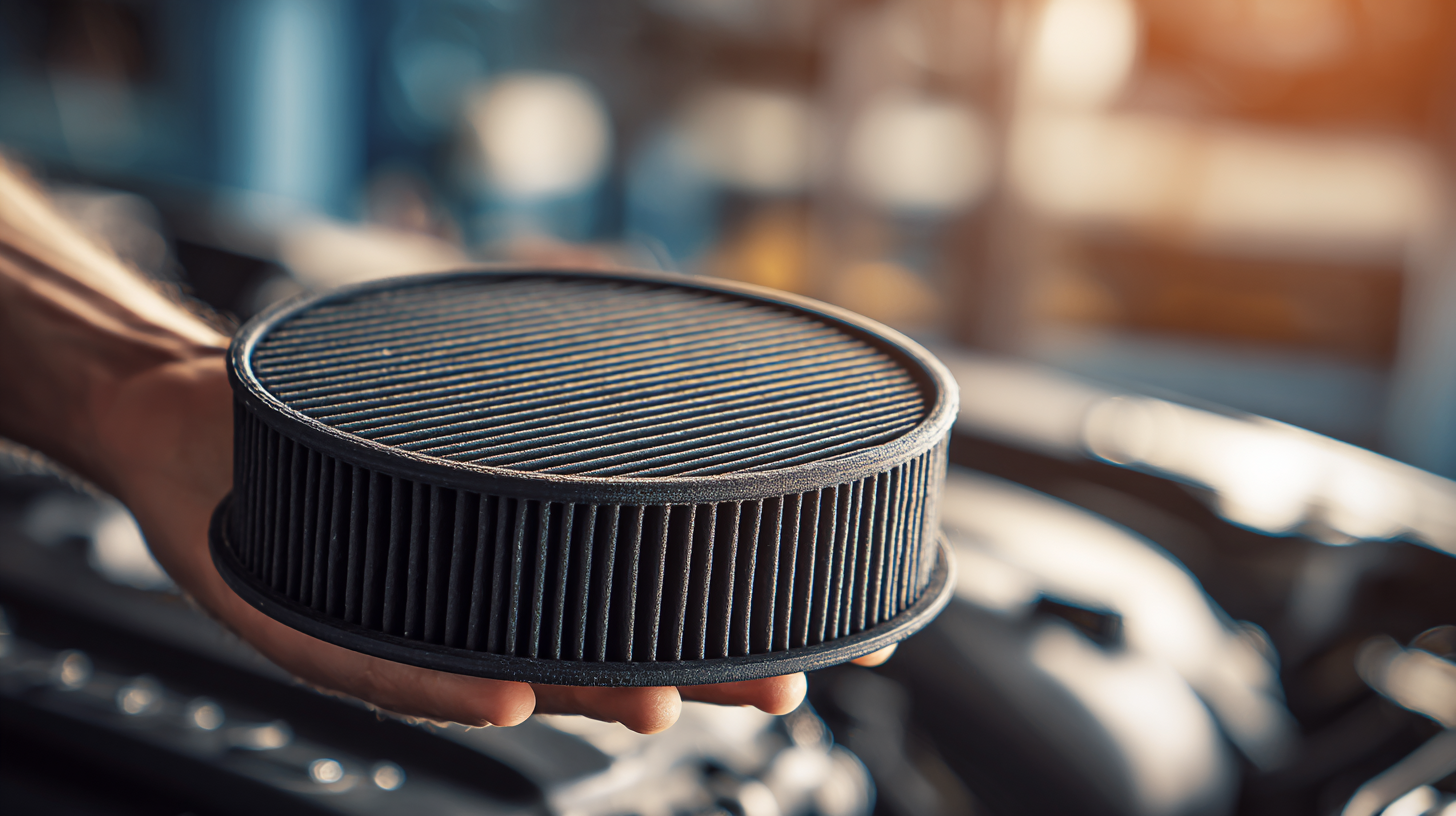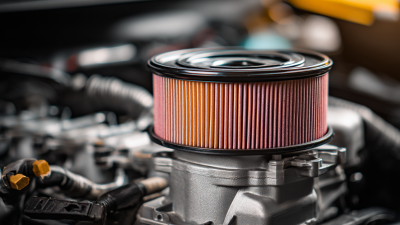In the realm of automotive maintenance, the significance of selecting the right automotive filter cannot be overstated. According to a report by the Automotive Aftermarket Suppliers Association (AASA), improper filtration can lead to a loss of engine efficiency by up to 10%, affecting overall performance and fuel economy. Additionally, a study published in the Journal of Automobile Engineering highlighted that vehicles equipped with high-quality filters tend to have lower emissions and enhanced longevity, thereby contributing to both ecological sustainability and vehicle reliability. With numerous options available in the market, understanding the critical role automotive filters play—ranging from oil and air filters to fuel and cabin filters—is essential for any vehicle owner looking to optimize performance and ensure a smoother driving experience. In this blog post, we will explore 7 essential tips for choosing the right automotive filter that not only boosts your vehicle’s performance but also supports long-term maintenance and environmental responsibility.

When it comes to maintaining your vehicle’s performance, choosing the right automotive filter is crucial. The automotive filter market is projected to reach US$ 23.3 billion by 2032, indicating a growing emphasis on the quality and efficiency of these components. Different types of automotive filters serve specific functions, from air and oil filters to fuel and cabin filters. Each type plays a vital role in enhancing engine performance and ensuring a clean environment inside the vehicle. For instance, cabin air filters not only filter out dust and pollen but also reduce harmful pollutants, which is increasingly important in urban settings.
Understanding the various automotive filter types is essential for making informed replacements. For example, air filters help to maintain optimal airflow to the engine, contributing to better fuel efficiency and performance. Similarly, effective oil filtration is critical for engine longevity, preventing contaminants from causing damage. As vehicle emissions standards become more stringent worldwide, having efficient filters is not just beneficial for the vehicle's health; it is also essential for compliance with regulations. Therefore, selecting the right automotive filter can significantly boost your vehicle’s performance while aligning with environmental standards.
When selecting the right automotive filter, it's crucial to consider key factors that can significantly impact your vehicle's performance. The global automotive filter market, valued at approximately $12 billion in 2023, is projected to grow at a compound annual growth rate (CAGR) of 4.16% from 2024 to 2031. This growth highlights the increasing recognition of high-quality filters that enhance efficiency and longevity for vehicles.

One critical aspect to evaluate is the type of filter needed for your vehicle, as there are various kinds available, including oil, air, and fuel filters. For instance, the automotive fuel filter market alone, currently valued at around $3.0372 billion, is expected to reach $4.829 billion by 2031, growing at a CAGR of 6.05%. This statistic underscores the essential role of fuel filters in maintaining engine health, making it important to choose filters that meet or exceed OEM specifications.
Additionally, consider the material and construction of the automotive filter. Advanced materials, such as Polybenzimidazole (PBI) fibers, are gaining traction due to their durability and resistance to high temperatures. With the market for PBI projected to grow at a CAGR of 5.57%, these fibers are becoming more prominent in automotive applications, further emphasizing the need for informed choices when selecting filters that ensure optimal vehicle performance.
Choosing the right automotive filter is crucial for enhancing your vehicle's performance and longevity. Quality filters, whether they are oil, air, or fuel filters, function as the first line of defense against contaminants that can wreak havoc on your engine and overall system. According to a study by the American Petroleum Institute, using high-quality oil filters can extend engine life by up to 10% by preventing harmful particles from entering the oil circulation, which in turn reduces engine wear and enhances efficiency.
Moreover, a report from the Automotive Aftermarket Suppliers Association indicates that clean air filters can improve engine performance by as much as 11% and increase fuel efficiency by around 2%. This is particularly vital as dirt and debris can impair the air intake system, leading to suboptimal combustion and higher emissions. By investing in quality filters, vehicle owners not only enhance their car's performance but also contribute to its longevity, as these components work synergistically to maintain optimal engine health and reduce the risk of premature wear.
When it comes to maintaining your vehicle's performance, one often-overlooked component is the automotive filter. Regular installation and upkeep of these filters can significantly contribute to your car's efficiency. According to a study by the Automotive Aftermarket Industry Association (AAIA), clogged filters can decrease fuel efficiency by up to 10%, so ensuring that your filters are in optimal condition is crucial.
For DIY enthusiasts, installing an automotive filter can be straightforward with the right knowledge. Start by consulting your vehicle's manual for specifications, then gather the necessary tools. For engine air filters, ensure your hands are clean to avoid introducing contaminants. Once replaced, it's also essential to maintain these filters regularly; the AAIA recommends checking air filters every 12,000 miles and oil filters with each oil change. Regular visual inspections can help catch any issues early, preventing more extensive damage and costly repairs down the line. By taking these steps, you can maximize your vehicle's performance and longevity.
When it comes to selecting the right automotive filters, avoiding common mistakes can significantly enhance your vehicle's performance. One of the most frequent errors is overlooking the specifications. Many drivers choose filters based solely on price or generic descriptions, failing to recognize the importance of compatibility with their specific vehicle model. Research indicates that using the correct filter can improve engine efficiency by up to 10%, as highlighted in various industry reports.
Another prevalent mistake is neglecting the maintenance schedules recommended by manufacturers. Filters often need replacement at certain intervals, and ignoring these guidelines can lead to decreased airflow and fuel efficiency. According to automotive experts, dirty or clogged filters can reduce engine power by as much as 15%. Furthermore, consumers should be cautious about opting for off-brand filters that may not meet the necessary standards, as low-quality components can compromise engine performance and longevity. Making informed choices based on reliable data can ensure optimal performance and prevent costly repairs down the line.







